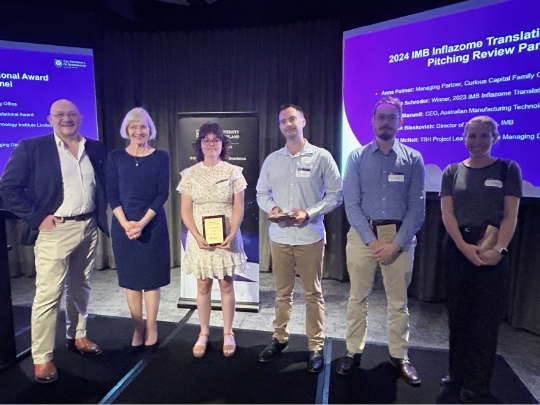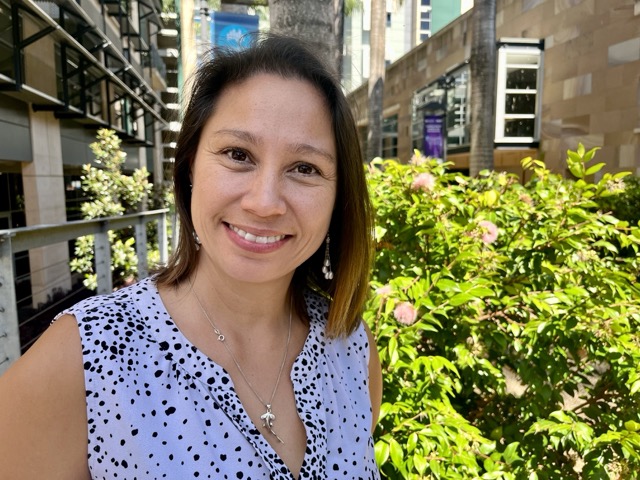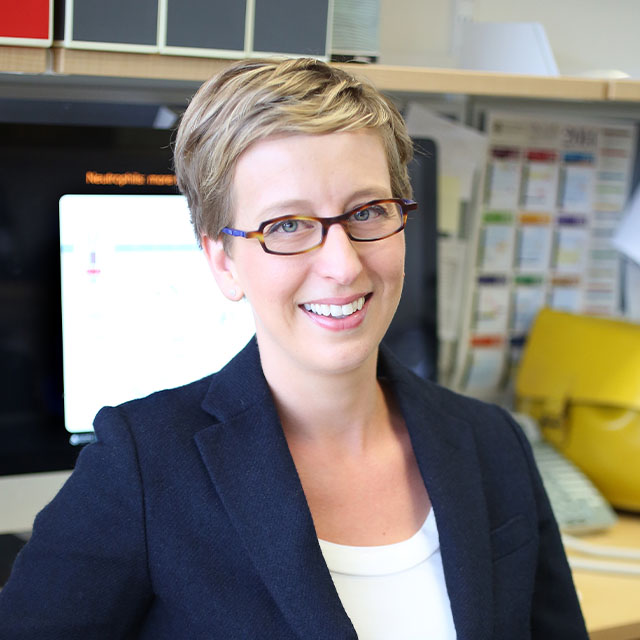The IMB Inflazome Translational Award recognises an outstanding IMB researcher working on a project with translational potential. The Award provides $125,000 over one year to accelerate the winner's translational research to enable future competitive funding success, commercialisation or community impact.
The award is funded by royalties from the sale of IMB spin-out company Inflazome Pty Ltd, which was sold to Roche Pharmaceuticals in the biggest biotech deal in Australian history in 2020.
Finalists for the award pitch for the funding in a Shark Tank-style competition at our annual Research Engagement Dinner.
Congratulations to our 2024 Award winner
Dr Fleur Garton | Every second counts when you have MND
Motor neurone disease (MND) is a devastating condition with no cure, and diagnosis is painfully slow – often taking over a year. Our team has developed a new blood test that detects DNA fragments from damaged cells, offering a fast, accurate diagnosis for MND. This early detection could give patients quicker access to treatments and clinical trials, potentially slowing disease progression. Our next steps are to refine and scale up this test, bringing much-needed hope to those living with MND and their families.

Past Inflazome Translational Award winners
2023: Professor Kate Schroder | Climbing new frontiers to treat airway diseases
Do you take breathing for granted? In severe COVID19, influenza and asthma attacks, patients struggle to breathe because their lungs are inflamed and battling a virus. This is frightening, dangerous, and difficult to treat as current anti-inflammatory drugs offer limited benefit. We are developing a new class of drug – that precisely blocks a protein called NLRP1 – to revolutionise the treatment of virus-induced airway diseases. Upon encountering a virus, NLRP1 launches dangerous inflammation. We will assess NLRP1 activity in human disease tissue to provide proof-of-concept that patients with acute and chronic airway diseases will benefit from our exciting first-in-class drug candidate.
 2022: Dr Melanie Oey | Improving wound healing using photosynthetic light
2022: Dr Melanie Oey | Improving wound healing using photosynthetic light
Wound care is a global problem which costs billions of dollars each year. The aging population and increase in chronic disease patients has led to the increasing occurrence of chronic wounds, fueled by poor blood circulation. Oxygen is essential for all wound healing processes, but hyperbaric chamber treatments are seldom used because they are expensive and logistically challenging. I propose to use photosynthetic single cellular algae (microalgae) to develop simple, cheap, “off-the-shelf” wound dressings that continuously supply oxygen. They have the benefits of being antimicrobial, anti-inflammatory, anti-itch and non-stick, support wet wound healing and require infrequent dressing-changes. Algae can provide effective wound healing at the fraction of the cost of current therapies.


